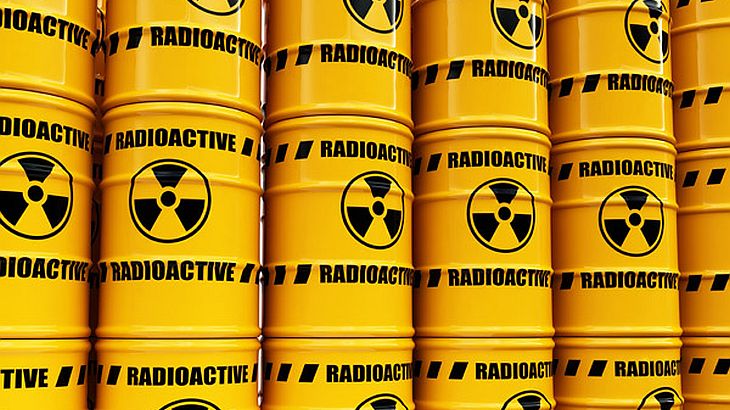The German government has settled with the country’s four nuclear companies on four interim storage facilities for radioactive waste that is currently stored abroad, but Bavaria is up in arms over the decision, EurActiv Germany reports.
“CASTOR transport is a violation of the rules”, said Horst Seehofer, the State Prime Minister of Bavaria. “We will have to discuss that within the coalition,” he indicated at an executive meeting of his party, the conservative Christian Social Union (CSU).
The CSU is currently a member of Germany’s coalition government, which also includes Chancellor Angela Merkel’s Christian Democratic Union (CDU) and the Social Democratic Party (SPD).
On 19th of June, the federal government submitted an overall plan for returning radioactive waste to Germany from reprocessing operations in France and the UK. According to the plan, 26 castor containers are to be distributed across four interim storage sites in Germany.
One such site intended to receive a shipment of castor containers is the nuclear power plant Isar, in Lower Bavaria. Highly radioactive waste is also planned to be sent to Brokdorf, Philippsburg and Biblis. Environment Minister Barbara Hendricks drafted the key points of the plan in cooperation with the four nuclear power companies – E.ON, RWE, Vattenfall and EnBW.
Meanwhile, state governments with members of the Green party in their coalitions were especially adamant that, as the biggest producer of nuclear waste, Bavaria must also take on some of the radioactive waste.
“We agreed that we would decide all the issues related to the Energiewende together. Why she (e.n. Barbara Hendricks) has rushed ahead to the home stretch on these decisions remains her secret”, Seehofer said, adding that he had already notified SPD leader Sigmar Gabriel.
Germany is required to take back German nuclear waste from the reprocessing facilities Sellafield in the UK (21 castors) and La Hague in France (5 castors). Up until now, it had been unclear where these would be stored after the interim storage facility Gorleben was legally ruled out, after searching for a permanent disposal site.
Hendricks said she chose Brokdorf and Isar, along with Philippsburg and Biblis, because these locations were the best-suited according to their technical, legal, experience-related aspects as well as from a political standpoint.
“This allows for a gradual and punctual return of the castors through the energy provider firms”, Hendricks said. In addition, it is a condition of fairness to distribute the burden of nuclear energy consumption in a balanced manner among the German states, across Germany.
Meanwhile, the Greens accused the CSU of hypocrisy. “Environment Minister Hendricks rightfully took up the initiative, after Bavaria hindered the 2013 consensus between the federal government and the states,” said Sylvia Kotting-Uhl, the spokeswoman for nuclear policy.
“Thus, the hypocritical blustering from Munich is completely inappropriate. Bavaria was and is one of the biggest producers of atomic waste in Germany. It is long past-due that Bavaria finally accept its share in the responsibility.”
Though the Hendricks’ concept was presented on Friday, no exact decision was made regarding the location. “My concept is supposed to act as a yardstick for nuclear power companies, on how they can fulfill their legal duty to take back and store vitrified radioactive waste from foreign reprocessing,” Hendricks explained in Berlin after a talk with executives from the nuclear power plants.

